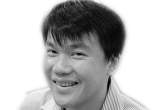Is Singapore ready for the 'Commoditization of Facts?'
By Charlie AngRenowned physicist Michio Kaku predicts that by 2030, we will be wearing computing lens. Google is shipping its Glasses later this year. Search engines, combined with the knowledge repository called the Internet, have made knowledge ubiquitous to almost all.
All of us feel something is coming, but what exactly is it? And what does it mean for Singapore? I call this, the Commoditization of Facts.
In distant history, many “elements” had been commoditized, advancing the quality of human lives at a deep level. The process of commoditization transforms a scarce and coarsely defined “element” into one of abundance and that can be atomically measured.
Time and space has undergone centuries of commoditization. Five centuries ago, telling time to within an hour of precision was challenging and required the best scientific brains of the day.
In 16th century, Dante’s Law prescribed the precise measurement of a year (365.2422 days) which eventually led to the replacement of the Julian calendar by the Gregorian one.
In the 17th century, watchmaker Harrison built the first chronometers that helped navigators accurately track their longitude and latitude at sea.
With modern technology, time has been “granularized” into nanoseconds and any global location can be determined within a few feet of precision by a standard GPS. Time and space have been commoditized; readily and precisely available.
Computing technology itself has seen processing power, storage space and transmission bandwidth being commoditized by 2012, enabling previously immature applications (tablet PC, online video, digital publishing, cloud computing, etc) to take off on a global scale.
The Commoditization of Facts means that information, especially the factual type, will be readily accessible to any individual in an instance. This slow-moving trend started with the mass printing of books (printing press was invented in 1450) and picked up steam with the invention of electronic computers.
It will soon reach fruition when computing glasses / lens are coupled with a powerful Internet knowledge repository (of which Google is the leading champion of). Information will be instantly available to the individual at a blink of the eye.
When that happens, the division of labor between the brain and computer may be fundamentally re-defined. Using a modern computer as analogy, our brain could function as the processor of information (CPU) and ultra-fast storage of core operating information (main memory) while the computing lens would operate as an infinite, abeit slower form of data repository (hard disk).
Whether that happens or not, only time will tell.
What I am driving at is that the function of factual memory as an individual’s competitive advantage will diminish in time to come. It is no longer a scarce commodity in the hands of a selected few and can be exploited as so.
On the other hand, an individual’s ability to recognize patterns, develop models, rationalize complexity, generate new ideas, analyze problems and communicate difficult concepts will be his critical skills in the new marketplace.
The capability to synthesize knowledge from multiple fields and disciplines (example: computer science + medicine + marketing) will also set the individual apart and strengthen his unique selling proposition.
Not surprising, these are right brain (creative) thinking processes. The left brain (mechanical) type of work are most prone to be off-shored to global service centers (e.g. accounting, x-ray analysis), automated by machines (e.g. bank tellers, payroll processing, translation) and delegated to customers (e.g. hotel booking, directory searches).
To truly upgrade to a knowledge economy, Singapore’s workforce needs to rapidly acquire higher order thinking, especially in the face of fierce competition from regional outsourcing destinations and increasingly intelligent machines.
We need to step up our game by nurturing the ability to develop big picture visions, creative ideas, technological innovations, original solutions and ingenious designs. This is the type of productivity drive that will generate quantum leap improvements and justify higher wages expectations.
Even more critical is how our education system can prepare the next generation to match the realities of the future marketplace.
I hope that Singapore schools will also figure this out soon enough as the current system seems inadequate for the future. Most of the learning in our schools is still very memory-centric, rather than critical thinking based. I would advocate:
• teaching children how to think, instead of what to think;
• schools to be learner oriented rather than teacher centric;
• more learning outside the classroom and in the real world;
• multi-disciplinary project work that combines various classroom subjects and non-academic topics;
• fostering of individual expression and creativity over standardized tests and answers;
• group games that inculcates team-work, experimentation, risk-taking and informed decision-making over textbook regurgitation.
In a time when our children wears computing lens to school, what will our teachers teach or what will the exams test? What type of analysis and insights is imperative at the workplace? It has to be at a much higher level than mere facts, which we can surely "google, wiki or youtube" for elegant answers.

























 Advertise
Advertise






